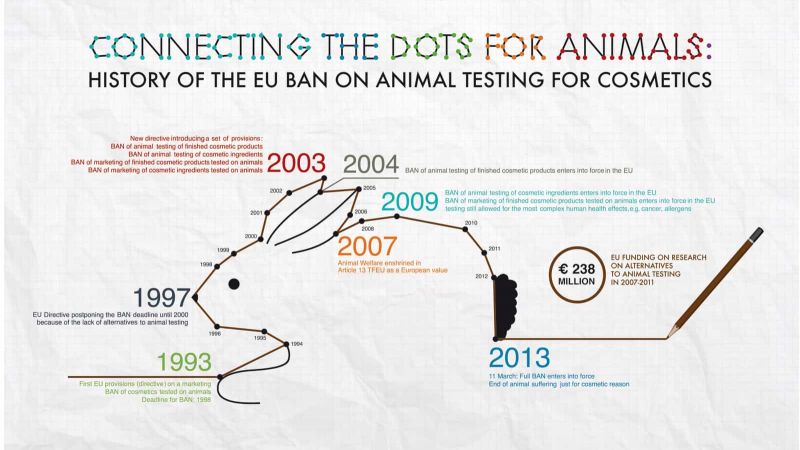Text to go here...
 Today the European Parliament agreed on the final text of the new Directive concerning the use of animals in research.
Today the European Parliament agreed on the final text of the new Directive concerning the use of animals in research.
The result of a revision process which started in November 2008, the new Directive (8869/10), will replace regulation which has been in place since 1986. It was revised to harmonise animal research legislation across European countries, and aims to strengthen the protection for animals, whilst allowing vital research to continue.
Over the last two years, the Directive has gone through a number of complex stages which you can read more about on our timeline. Today's meeting was a full European plenary session where members of all parties were in attendance. There were three amendments tabled by the Green party which were debated before a final vote was taken. These amendments related to the ability of member states to adopt more stringent measures against the use of primates for minor disease research, alternative methods, and the use of stem cells in research. All the amendments were rejected, with a significant majority of MEPs voting against them.
Whilst certain groups have raised concerns about the final text, it represents a balanced political compromise, which was negotiated between the EU Parliament, Council and Commission over the past few months.
'The Council and European Parliament have aimed to strike a balance between improving welfare and maintaining Europe's medical research.'
Brian Ager, Director General of EFPIA
The text is now final and cannot be changed. It will enter into EU law, and will then move into a period of national transposition, whereby all the member states in Europe must put it into practice in their own country. This period of transposition will take a number of years as there are a significant number of issues which will need careful consideration within member states and across Europe.
As Eurogroup for Animals, a group which represents the animal welfare orgainsations across Europe state: ‘This is not the end but the start of a process. EU Member States will have to start work now to make this new law the driving force to reduce and where possible end animal testing.'
Our Chief Executive Dr Simon Festing believes that ‘the new European law will be a perfect opportunity for the Coalition Government in the UK to bring science and medical progress into balance with animal welfare.'
The Association of the British Pharmaceutical Industry (ABPI) agrees: ‘This agreement should bring direct and tangible animal welfare benefits and allow essential medical research to continue in the UK and Europe, helping to deliver new and innovative medicines.'
Brian Ager (EFPIA) pointed out that 'It is clearly better for Europe that such advances are made here in Europe, where animal welfare is a key consideration in the research framework.'
Last edited: 31 October 2022 09:54



